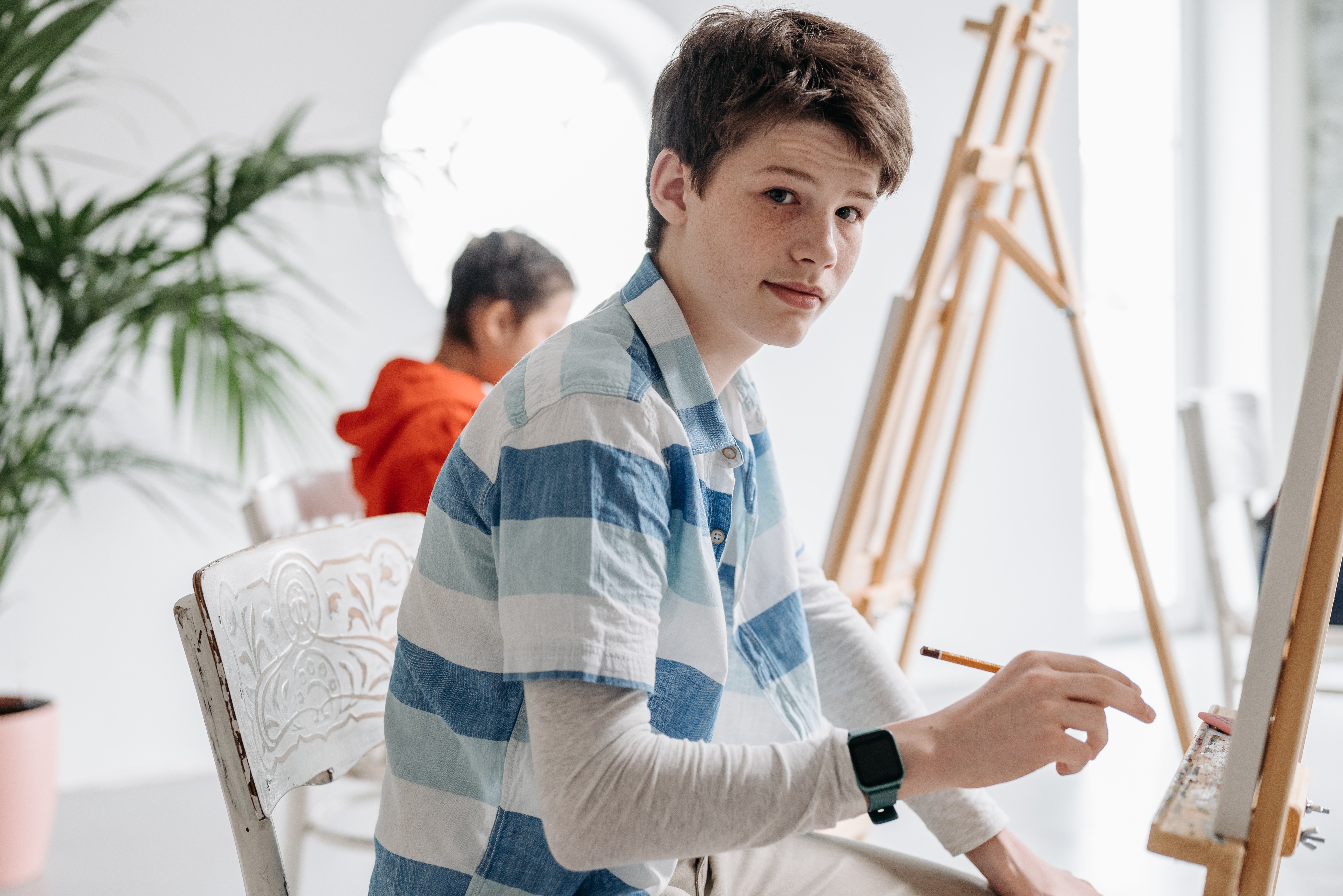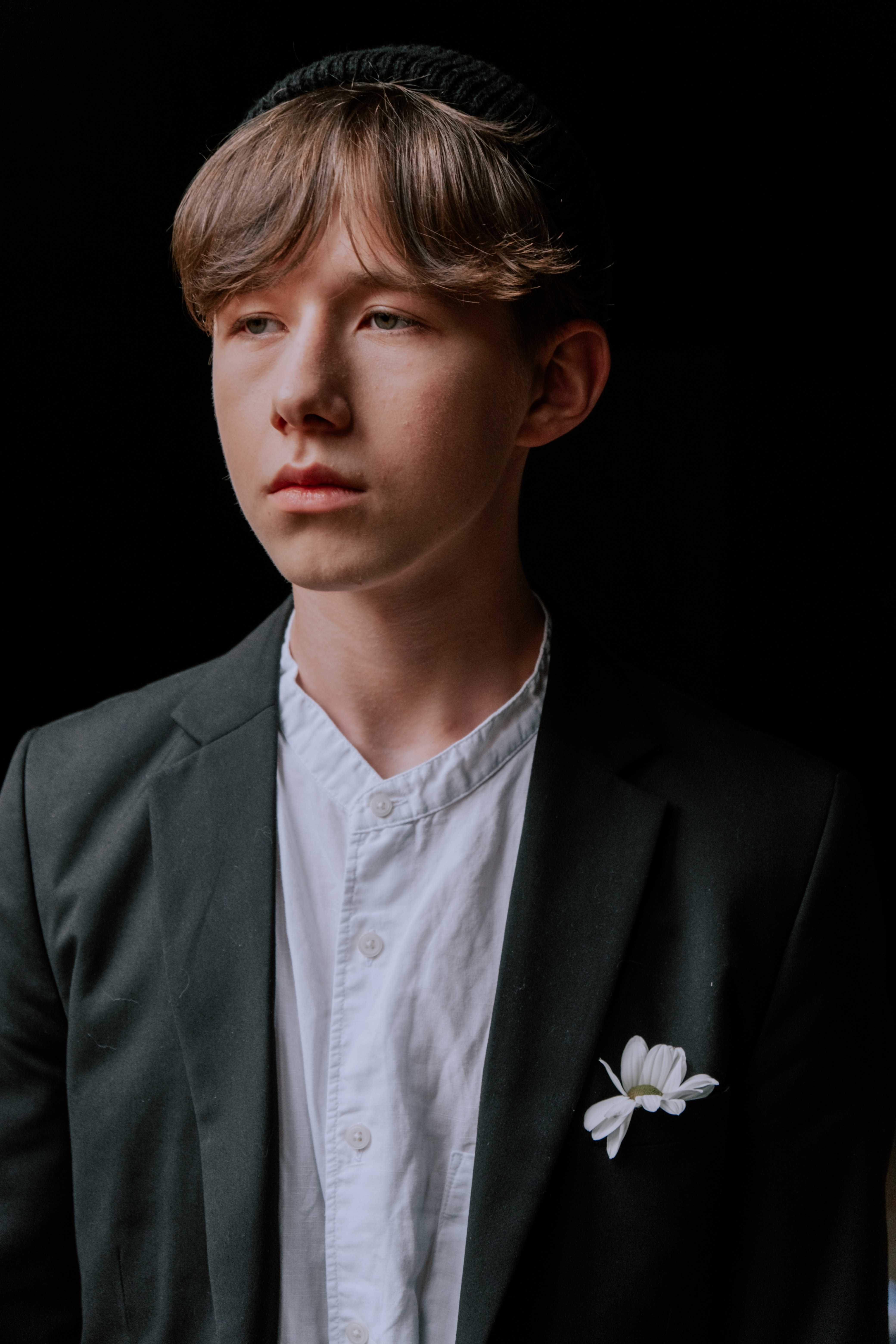
Ben slammed the door with a resounding bang. “I’m outta here!!” He called over his shoulder as he charged down the street. Jill, his mom, felt defeated. She had tried so hard to be reasonable, caring, and sensitive to his mood. But apparently she had stepped on his toes, an error which had become a routine event lately. She didn’t understand why Ben was in such upheaval these days. She didn’t feel like she knew him anymore. Who are you and what have you done with my son?? she thought to herself. It’s tough when you feel alienated by your angry child.
It all started when he began high school. She and Ben had always been close, and shared a love of fishing, cooking, and watercolors. Since Ben was 10, they’d taken watercolor classes together and both had improved in their skill. Both of them had framed masterpieces hung around the house. And, since Friday night wasn’t a school night, they cooked dinner together as often as they could. They fished a couple times a month on weekends when weather permitted, and enjoyed coming home, cleaning the fish, and cooking it with corn on the cob and spinach salads.

But since Ben had started high school, it was as if he had no respect for her, no regard for her view points, or the boundaries she had always set. She felt so alienated by her angry child.
It hurt.
She knew that teens had conflict with their parents as they set out to find themselves, differentiate themselves as individuals from their parents. She knew that. But this seemed worse… more extreme somehow.
Scenes like this one, where he ran out banging the door and disappearing, were becoming more and more commonplace. But why?
Why was he so angry?
What was it that caused him to resent her so deeply?
After a year of his sullen withdrawal, his berating of her, and the complete absence of the bond they had always shared, the hurt she felt grew so overwhelming, that she began to withdraw, too. Her efforts to talk to him, listen to him, had proven futile.
Ben seemed to want nothing to do with her, and was not willing to express why he was so angry. Jill wracked her brain to figure out why.

After her husband had left, she had struggled from the pain, abandonment, and overall loss. For Ben’s sake, she had tried to rise above her pain and give him the happy childhood he deserved. Hence, the fishing, cooking, and art.
They enjoyed hiking together, camping near a river, and catching their dinner. So many wonderful memories were created in those years. Memories that also helped her move forward.
She knew Ben didn’t grasp her loss and grief… but she also knew she couldn’t grasp his. They both tried to understand, be compassionate and patient, and reach out for moments of joy.
It had worked, until the last year.
Jill’s gallant fight to rise above her grief finally began to crumble. Her own home felt like a war zone, and she was baffled as to why. Home was supposed to be a refuge from the harshness of the world, but hers had become a place where she was always on edge and isolated from love. Isolated and alienated by her angry child.
She had always tried to make it a refuge for Ben, and hadn’t anticipated “home” coming to this. Her loving effort to infuse joy into her son’s life just started to weaken. In the isolation she found herself in, disillusionment disintegrated into depression.
The pain of it was too much, and she felt herself giving up.
But she knew that Ben was in a vulnerable place in his life. He was a teenager and needed support and love and understanding to navigate all he was facing. But her energy for trying to help was waning. She didn’t know what to do to rise above all this. And she worried that other teenagers were his only input.
She could feel herself becoming numb…. not caring anymore about anything. Jill got on her laptop to explore what was happening to her, impairing her ability to show unconditional love to her son in his time of such need.
She tried googling the way she felt and what she could identify: isolation, loss, hurt, numbness, reduced energy… and a bucket of diseases came up. Jill instinctively knew that most of them weren’t relevant, but then she saw an article about the grieving process.

She recognized herself in the symptoms it described.
And she learned that if the grief process becomes stalled for some reason, it can funnel into depression. She started reading more about depression, and realized it sounded like a fit for what was happening to her.
Then she looked for treatment for depression — and learned that medications are helpful to some people, but at least 30-40% get little to no benefit from medication, so alternative treatments are often required for real relief.
The most promising alternative treatment she found was IV ketamine treatment.
She found listings of psychiatrists in her area, so she cross-referenced psychiatrist with ketamine treatment and found someone who seemed to offer it.
During a consultation appointment, the doctor diagnosed her with major depressive disorder, and they talked about medicines and treatments. They agreed to see what ketamine treatment could do for her.
By her third infusion, she began to see things differently.

She talked to Ben about her treatment, and that she believed it was helping. She was able to approach him in a newer, better way and he responded. As they talked she learned he was being bullied at school — she didn’t know! — and had been teased about the relationship he had with his mom, and so he had just slowly withdrawn.
Poor guy. In his effort to defend himself against the bullies, he had stripped himself of his most loyal supporter.
This discussion seemed to improve their line of communication, though Ben remained guarded. But, it was a start.
Jill continued with her infusions, realizing that to be who she wanted to be for her son, she needed to take care of herself. The process of it all also helped her change the way she saw herself in her son’s life — to being a support person for the life he wanted to build, rather than an integral part of everything. And she began to feel hope that should wouldn’t always be alienated by her angry child.
She learned to let go, to some degree.
She received 8 infusions in all, and went back for booster infusions twice, a month apart. By this time, Jill was feeling resilient again, and that continued to grow. She found a way to talk with Ben about how he was feeling, in the face of what was going on at school.

Ben could see a huge improvement in his mom’s outlook and attitude, and he began to wonder if this treatment could help him, too. They talked about it, and made an appointment with the same doctor, who diagnosed depression and social anxiety, and told Ben that ketamine treatment might help a great deal.
But before they set up his infusion schedule, she impressed upon him and his mom that ketamine doesn’t help everyone. However, she believed there was every reason to hope it would help him. Still, they would have to see.
The evening after his first infusion, Ben admitted to his mom that he’d been having thoughts of suicide, but they seemed to be gone now. He had been too afraid to talk about it, but now that they were gone, that in itself was such a great relief.
He felt a subtle improvement with each infusion and by the 4th, he was feeling like smiling again. He joked with his mom on the way home, and they both laughed. How refreshing that was! She was getting inklings of a time when she would not feel alienated by her angry child. That her child wouldn’t always be angry, but could find peace.
Jill didn’t take it for granted.
She asked Ben about friends he had, anyone he actually enjoyed. He mentioned one friend he trusted. Jarrad. She suggested that he invite him for pizza, and if that went well, how about a camping/fishing trip?
By this time, Ben was feeling better, more confident, and less withdrawn. They set it up and they all had a great time.
As time went by, Ben and his mom had plenty of bumps in the road. Because, after all, he was busy in the process of growing up and becoming independent. But they were always able to talk, treat each other with respect, and truly want the best for each other.

Through the crucible of the year Ben was 15, Jill had learned about allowing him to set boundaries and she treated them with respect. In turn, he had learned that his mom had his back and respected the young adult who was emerging.
They had both suffered deep loss, but they learned, with the help of ketamine treatment, that life can move forward. And that it should.
What about you?
Do you find that the transitions your child goes through make you feel isolated? Have you experienced loss so profound it has interfered gravely with the course of your life? Your ability to function?
If you can identify with all that Ben or Jill went through, and nothing you’ve tried has helped, call us.
Life is hard. Not all the time, but sometimes it really is. And sometimes when it’s hard, the shock and loss can feel crippling.
But there’s help.
We’re here to help you cross the bridge from isolation and incapacitation to freedom, confidence, and hope.
Let us help you experience your best.

To the restoration of your best self,
